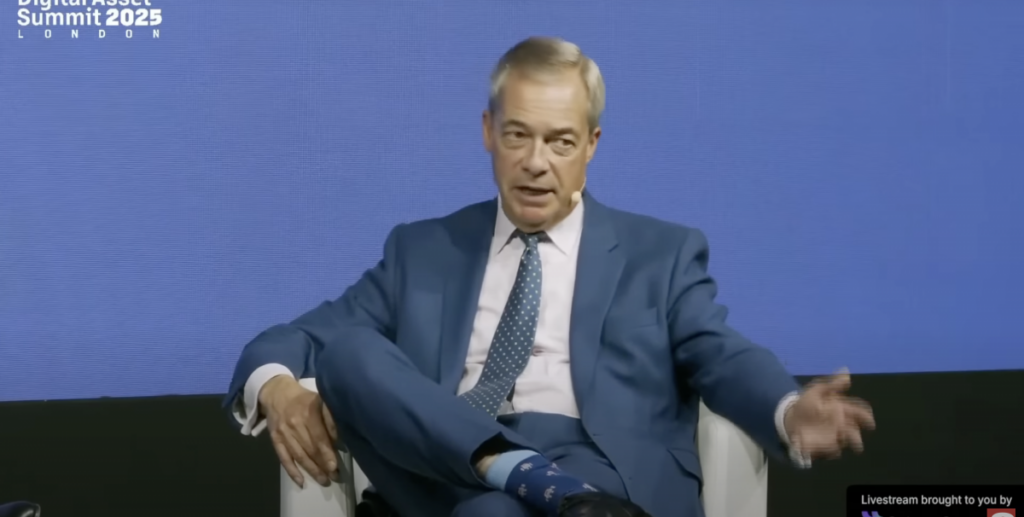Farage’s speech was framed as an appeal to “growth,” but it was a defence of privilege. He fretted over inheritance and “exit” taxes that inconvenience the rich.
Andy McDonald is the Labour Party for Middlesbrough and Thornaby East
Ahead of this month’s Budget, Britain is burning through wages just to stay afloat. Rent and mortgages climb faster than pay. Energy and food costs drain every pay packet. Working families are struggling — and the government needs a plan to stop it.
The rise of Reform in the polls is a challenge for Labour — but the Budget, and Nigel Farage’s recent intervention, both offer an opportunity.
In Farage’s economic address at the start of this month, he stopped pretending to be a populist reformer and revealed himself as exactly what he is: a politician defending the wealthy while asking everyone else to tighten their belts.
Protecting the Wealthy, Not the Workers
Farage’s speech was framed as an appeal to “growth,” but it was a defence of privilege. He fretted over inheritance and “exit” taxes that inconvenience the rich.
He claimed to champion people earning £30,000 a year. But his real concern lies with those worth £30 million. Shielding inherited wealth and reassuring investors — not rebuilding the real economy — is his priority.
No Tax Relief for Ordinary Households
He told us, “substantial tax cuts are not realistic at this current moment in time,” – a core part of their 2024 manifesto.
He promises to scrap inheritance tax on family firms and farms — indeed, he’s said he’d abolish it altogether, benefiting families worth over £1 million — yet offers nothing for low- and middle-income earners.
Farage’s agenda leaves working people exactly where they are: struggling under high prices, stagnant wages, and a shrinking welfare safety net.
Threatening Pension Security
He described public sector pensions as “a massive liability.” Retired teachers, firefighters, and NHS workers hear that as a warning: cuts are coming. The state pension cannot be far behind.
Driving Down Young People’s Pay
Farage argued that “the minimum wage is too high for younger workers.” In a country where rent devours half a paycheque and student debt looms large, his instinct is to cheapen labour.
Young workers deserve pay and prospects — not to be treated as a cost to be cut.
Cutting the Services People Rely On
He dismissed funding public services as “another depressing budget…” and argued the government “doesn’t have the courage to cut public spending.” Behind his rhetoric lies another round of austerity: fewer nurses and doctors, fewer teachers, and councils forced to axe support. The public don’t want austerity and Labour’s task is to demonstrate it is over.
Farage’s Britain would ask people to pay more, get less, and be grateful for it.
Voting Against Workers’ Rights
And last week, as Labour advanced its Employment Rights Bill, Farage and Reform UK voted against it. He backed amendments that weakened job protections like day one rights at work.
He sides with employers seeking profit without accountability, not with workers fighting for security. Farage’s record shows whose side he’s on. Labour has an opportunity to draw a line.
Labour’s Opportunity — and Responsibility
Labour’s approach, and mistakes like cutting the winter fuel allowance and attacking disability welfare, have allowed Reform to take the lead in polling in recent months. Farage has let the mask slip, revealing his establishment agenda. Labour must use this Budget to deliver transformative economics if it wants to restore trust.
Rachel Reeves and the Tax Challenge
Rachel Reeves has been upfront about taking tough decisions on taxation. Her willingness to speak out against Conservative austerity is welcome — it signals clarity and courage.
But Labour cannot sacrifice its core values in delivering the funding public services need.
Where additional taxation falls matters. There can be no question that increasing income tax on low- and middle-income earners would be wrong. Freezing personal allowance thresholds would be a stealth tax on ordinary people.
Additional taxation must come from wealth: through existing tools like capital gains tax, and through bold new measures targeting those who can afford it. Research from the Institute for Fiscal Studies and New Economics Foundation is clear — higher taxes on lower and medium earners and frozen allowances disproportionately hurt families already struggling. Labour must avoid stealth taxes that deepen inequality.
Reducing poverty quickly so people recognise it is Labour’s priority is vital. We must cut the two-child limit completely and Rachel Reeves’ remarks on it lately are welcome.
There are other decisions to weigh up. The government should reward public servants punished under the Conservatives, and commit to restoring public sector pay over the next few years, to stem the nurse and teacher retention problems.
The challenge is to fund public services while protecting ordinary incomes. That means raising revenue from wealth over wages, progressive taxation over stealth measures, and boldness over caution. Labour must show that fairness, not fear, guides economic policy.
Farage offers austerity and privilege. Labour must offer justice and hope — for every family struggling to make ends meet — and prove that politics can still change lives.
Left Foot Forward doesn’t have the backing of big business or billionaires. We rely on the kind and generous support of ordinary people like you.
You can support hard-hitting journalism that holds the right to account, provides a forum for debate among progressives, and covers the stories the rest of the media ignore. Donate today.




